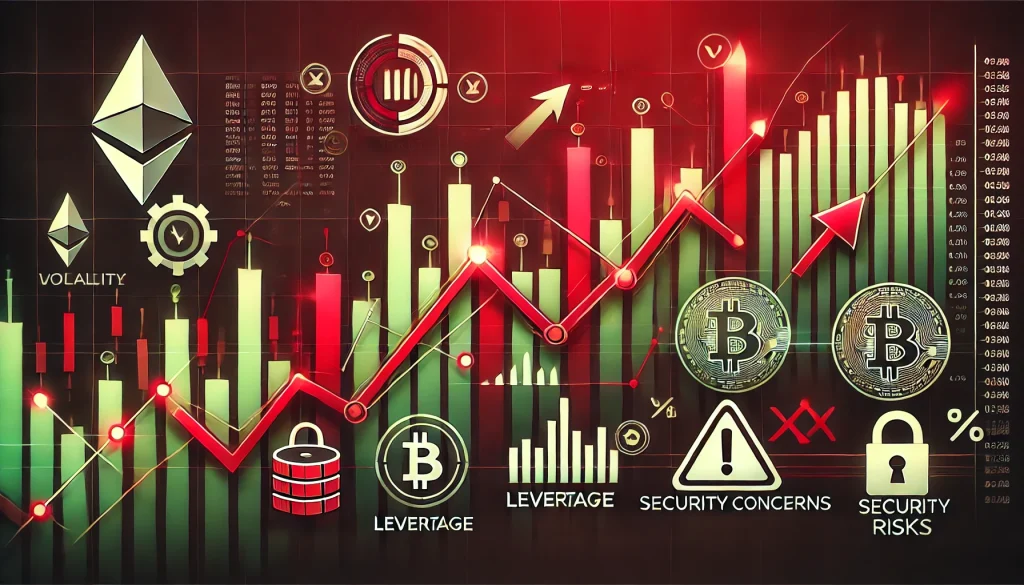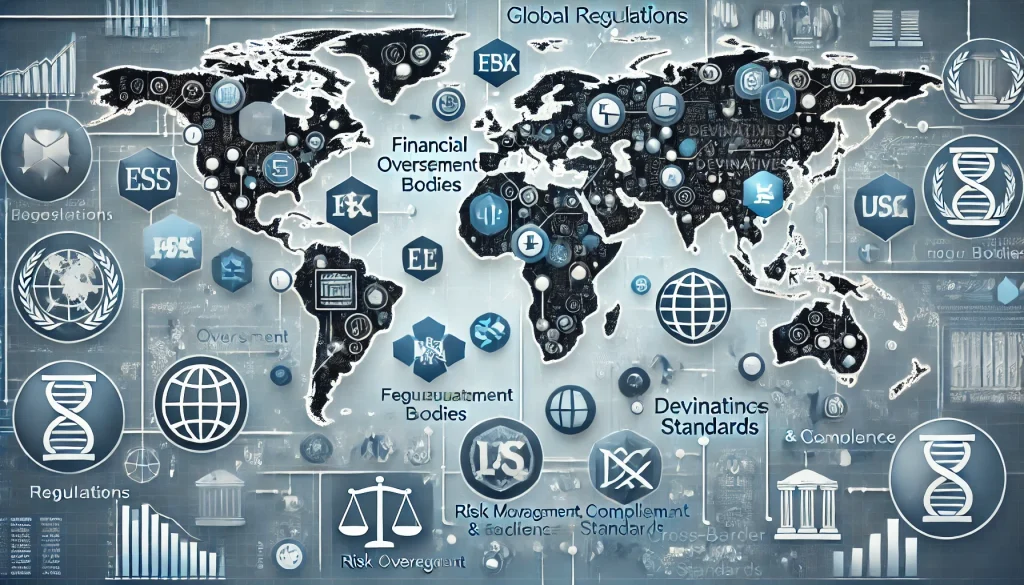
Crypto derivatives are becoming increasingly popular in the cryptocurrency market, offering traders opportunities to speculate on price movements and hedge their positions. These financial instruments include futures, options, and perpetual contracts, which enable traders to profit from both rising and falling markets without directly owning the underlying assets. Platforms like Binance Futures, FTX, and dYdX have seen a surge in derivatives trading volume, driven by the potential for high returns and advanced trading strategies. However, the complex nature of these instruments also brings significant risks, including market volatility, leverage-related losses, and regulatory scrutiny. This article provides a comprehensive review of the crypto derivatives market, its major players, associated risks, and the regulatory landscape shaping its future.
Understanding Crypto Derivatives
Crypto derivatives are financial contracts whose value is derived from the performance of underlying cryptocurrencies. They allow traders to speculate on price movements, manage risk, and gain exposure to digital assets without holding them directly.
Types of Crypto Derivatives
- Futures Contracts: Agreements to buy or sell a specific cryptocurrency at a predetermined price at a future date. They are widely used for speculation and hedging, allowing traders to bet on future price directions.
- Options Contracts: Contracts that give the buyer the right, but not the obligation, to buy or sell a cryptocurrency at a specified price before a certain date. They offer more flexibility than futures, as traders can choose not to exercise the option if the market moves unfavorably.
- Perpetual Contracts: Similar to futures, but without a set expiration date. Traders can hold positions indefinitely, paying funding rates periodically to keep their trades open.
Key Platforms Offering Crypto Derivatives
| Platform | Supported Derivatives | Key Features | Trading Volume (2024) |
|---|---|---|---|
| Binance Futures | Futures, Options, Perpetuals | High liquidity, diverse asset support | $50 billion daily volume |
| FTX | Futures, Options, Tokenized Stocks | Advanced order types, low fees | $30 billion daily volume |
| dYdX | Perpetuals (Decentralized) | Decentralized trading, high leverage | $10 billion daily volume |
Risks Associated with Crypto Derivatives Trading

- Market Volatility and Liquidations: High leverage amplifies cryptocurrency volatility, leading to forced liquidations and significant financial losses if the market moves against traders.
- Leverage Risks: Leverage magnifies both gains and losses. A 10x leverage means a 10% market drop can wipe out the entire investment, posing a serious risk to inexperienced traders.
- Counterparty Risk on Centralized Platforms: Centralized exchanges like Binance and FTX carry risks such as security breaches or bankruptcy, which can lead to loss of funds despite security measures.
- Smart Contract Risks on Decentralized Platforms: Decentralized platforms rely on smart contracts, which, if exploited, can result in financial losses. Choosing well-audited protocols is crucial to mitigate these risks.
The Impact of Crypto Derivatives on Market Volatility

- Price Manipulation Concerns: Large derivatives positions can influence spot prices, allowing traders to manipulate markets through strategic buying or selling.
- Volatility Spillover: High leverage and liquidations in derivatives can cause sudden price swings in the spot market, leading to a cycle of increased volatility.
- Hedging and Market Stability: Despite these risks, derivatives offer liquidity and hedging options, helping traders and institutions manage risk and maintain market stability during uncertain times.
Regulatory Concerns and Global Implications of Crypto Derivatives

Current Regulations
In the United States, the Commodity Futures Trading Commission (CFTC) oversees these derivatives trading, classifying them as commodities. The European Union has also introduced regulations to ensure transparency and investor protection. In Asia, regulatory approaches differ widely, with some countries embracing derivatives and others imposing strict restrictions.
Potential Future Regulations
Regulatory bodies worldwide are increasingly scrutinizing these derivatives market. Potential future regulations could include stricter Know Your Customer (KYC) and Anti-Money Laundering (AML) requirements, limits on leverage, and more robust reporting standards. These changes could impact the accessibility of derivatives trading and the operation of platforms globally.
Impact on Market Accessibility
Stricter regulations may limit the availability of crypto derivatives to retail traders, potentially reducing market participation and liquidity. However, clearer regulatory frameworks could also legitimize the market, attracting institutional investors and fostering long-term growth.
Conclusion
Crypto derivatives have become an integral part of the cryptocurrency market, offering traders tools for speculation and risk management. However, these instruments come with significant risks, including market volatility, leverage, and regulatory uncertainties. Traders must approach these derivatives with caution, understanding the complexities and potential pitfalls. As the market evolves, both traders and regulators must work towards creating a safer, more transparent environment for derivatives trading.
FAQ
What are crypto derivatives?
They are financial contracts like futures and options that derive their value from underlying cryptocurrencies.
Why are crypto derivatives risky?
They involve high volatility and leverage, which can lead to significant losses, especially for inexperienced traders.
Which platforms offer crypto derivatives?
Major platforms include Binance Futures, FTX, and dYdX, offering various derivatives like futures, options, and perpetual contracts.
Resources
- EY. Crypto Derivatives: Market Trends, Valuation, and Risk
- Mayer Brown. Crypto Derivatives Overview
- CoinMarketCap. Crypto Derivatives: An Ecosystem Primer
- Forbes. Crypto Derivatives: Opportunities and Risks
- Coin Backyard. The Rise of Crypto Derivatives
